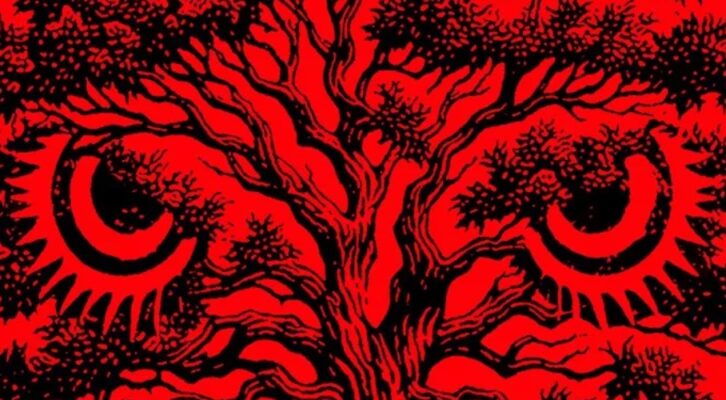
The Real Threat to Free Speech in America is From the Right, Not the Left—Stop Pretending Otherwise
Maris Kreizman on the Difference Between Cancel Culture and Consequence Culture
The road to fascism is paved with false equivalencies.
For years we’ve been told that the censorious Left is a serious threat to free speech. If Simon & Schuster cancels one book because the public (its customers) are outraged that the corporation was giving a platform to one of the more despicable members of the alt-right, it would be a slippery slope to worse kinds of censorship. Depicted as a kind of “woke” hysteria with far reaching consequences, cancel culture has been the defining moral panic of the past decade, and while we were arguing about who said what online, our first amendment rights were being trampled.
Threats to free speech coming from the Right are not equal to threats from the Left and we need to stop pretending like they are.
When we talk about cancellations in the book world we often speak of individual cases of authors or publishers catching public backlash for putting out books that are deemed “problematic” in some way. American Dirt and the outrage of readers who bristled at author Jeanine Cummins’s depiction of Mexican women. The book sold more than three million copies. This is not cancel culture.
Book banning is cancel culture. ICE’s unfettered power to disappear people and to assault peaceful protestors is cancel culture.
Earlier this week PEN America released a report called “The Normalization of Book Banning” that chronicles a disastrous time for free speech. When taken together since 2021, PEN reports that there have been “22,810 cases of book bans across 45 states and 451 public school districts.” In schools and libraries across the country, laws are being passed to try to erase trans and nonbinary and other queer people just as they’re trying to erase Critical Race Theory and any other historically accurate narrative that paints America in a less than heroic light. Or books that depict Israel in less than a heroic light. Meanwhile, the well-being and livelihoods of authors whose books do not top the list of most banned are in jeopardy.
The public criticizing an author or a piece of writing is not the same as local and federal governments passing laws to ban books by queer authors and authors of color.
We’re talking about free speech at the moment because Jimmy Kimmel’s late night show was briefly suspended by ABC/Disney after he made a joke about the political affiliations of Charlie Kirk’s murderer. Brendan Carr, who wrote the chapter on the FCC for Project 2025 and now runs the agency, said that Kimmel’s joke was part of a “concerted effort to lie to the American people,” and President Trump later bemoaned Kimmel’s reinstatement with a threat on Truth Social: “I think we’re going to test ABC out on this. Let’s see how we do.”
“Now the Left Cares About Free Speech Again,” declared the headline from a September 23 op-ed by New York Times columnist Bret Stephens, to whom I won’t link, and who once tried to get a professor fired for calling him a silly name on social media. Yes, it’s true that the country paid an inordinate amount of attention to the Jimmy Kimmel suspension, but no, we’ve been here caring about free speech all along.
A week before Stephens’s column ran, the New York Times featured Suzanne Nossel, the former head of PEN America who suppressed speech in her own organization, writing about “the dangers of consequence culture,” arguing that “the result of outsize consequences for speech is the same: a society deprived of open discourse and ruled by fear.”
PEN America under Nossel spent an inordinate time equating “consequence culture” with “cancel culture” in its 2023 report “Booklash: Literary Freedom, Online Outrage, and the Language of Harm.” I noted at the time the report was released that the challenges from “social just warriors,” as Nossel calls them in her op-ed, made up less than 0.0054% of all books. Thankfully after Nossel’s departure PEN appears to be getting back to focusing on the bigger issue.
I’m here to say that consequences are good, actually. I am not a first amendment scholar but consequences coming down directly from the federal government or the President’s social media accounts are not the same as consequences coming from the ground up. The public criticizing an author or a piece of writing is not the same as local and federal governments passing laws to ban books by queer authors and authors of color.
Last month a federal judge dismissed a defamation lawsuit brought by Trump against the New York Times and Penguin Random House, saying that the case was meritless. But still, as we watch our litigious leader harass his enemies at will, I will be sure to keep an eye on what the parent companies of corporate publishers will do. I fear that our institutions will continue to defer to the Trump administration. As the Paramount Skydance Corporation has installed noted rightwing scold Bari Weiss at the helm of CBS News while canceling The Late Show with Stephen Colbert, here’s a small silver lining: Paramount sold Simon & Schuster in 2023. The bad news is that the private equity firm KKR is now the owner.
Maris Kreizman
Maris Kreizman hosted the literary podcast, The Maris Review, for four years. Her essays and criticism have appeared in the New York Times, New York Magazine, The Atlantic, Vanity Fair, Esquire, The New Republic, and more. Her essay collection, I Want to Burn This Place Down, is forthcoming from Ecco/HarperCollins.



















